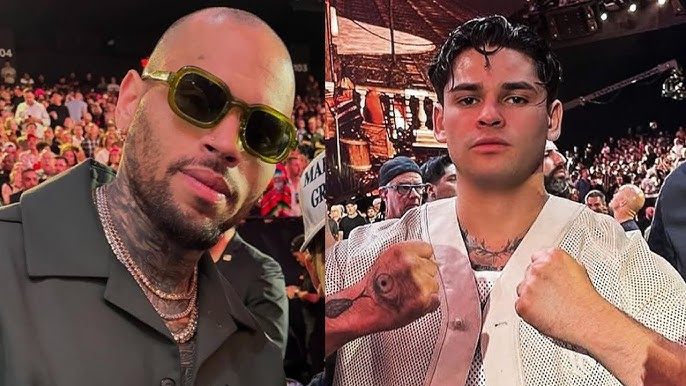A Mother’s Final Gift: The True Measure of Love
When my mom passed away after a long battle with cancer, I expected a lot of emotions to hit me, but what I didn’t expect was the shock that came with the reading of her will. You see, I had been my mom’s caregiver for years, staying by her side through every painful step of her illness. I held her hand, fed her when she was too weak, and sat by her bed as the days blurred into nights. My mom had always been my best friend, and being there for her during her final days was the least I could do. However, when her will was read, it turned out that my brother and aunts, who had barely been around except to ask for money, were the ones who were named in her inheritance.

I remember sitting in the lawyer’s office that day, the weight of grief still heavy on my shoulders, surrounded by family members who had only been interested in mom’s finances during her illness. My brother and aunts had shown up whenever they needed something—usually when they had bills to pay or other selfish demands. One of my aunts even had the audacity to ask my mom for her “contacts” to help her secure a new house while my mom was nearing the end of her life. My mother, who owned a small real estate agency, had always been generous, but even in her declining state, these relatives continued to take advantage of her kindness.
When the lawyer began reading the will, I sat there sipping weak tea from a chipped cup, the scene straight out of a movie. The setting was as old-fashioned as it gets—wooden furniture, dim lighting, and a coffee table that had clearly seen better days. It was exactly the kind of place you’d expect for a moment that would change your life.
Then, the lawyer dropped the bombshell. My mother’s entire savings—$5 million—was to be split between my brother and my aunts. That’s when I choked on my tea. I couldn’t believe it. I had been by her side through every excruciating moment of her illness, and now it seemed I was left with nothing. As I sat there, tears spilling down my cheeks, I saw the smug looks on my relatives’ faces. They didn’t even try to hide their glee.

I was baffled. How could my mom have done this to me? I had been the one to care for her, the one who loved her and never asked for anything in return. And here I was, left with nothing while the ones who only showed up for handouts got everything. I couldn’t help but wonder if I had done something wrong, if maybe I hadn’t cared enough for her in her final days. The doubts started creeping in.
Then, the lawyer stood up and handed me a plain envelope. “Your Mom loved you more than anyone,” he said quietly. The room fell silent, and I could feel the greedy eyes of my relatives on me, hoping for more information.
The envelope simply had “Dearest Lily” written on the front in my mother’s familiar handwriting. My heart raced as I opened it. Inside, there was a key and an address written on a single piece of paper. Confusion set in. What was this about? What was my mom trying to tell me?
The lawyer remained tight-lipped, so I decided to check out the address. I had no idea what to expect. Maybe it was a storage unit, or maybe just another task mom had left for me. The lawyer offered to accompany me, and as we drove to the address, I couldn’t shake the feeling that something big was about to happen.
When we arrived, my jaw dropped. The address led us to the most beautiful house I had ever seen. It was tucked away in a quiet neighborhood, a hidden gem surrounded by gardens full of my favorite flowers. I felt a lump in my throat as I realized that my mom had known me so well. Every detail of the house seemed like it had been chosen with me in mind.

When I stepped inside, it was clear that this was no ordinary gift. The house was filled with memories of my mom and me—photos of us lined the walls, and her spirit seemed to linger in every corner. On the glass table in the entrance hall was another letter, and this one explained everything.
In the letter, my mom told me that she knew exactly what my brother and aunts were like. She knew they were only interested in her money and that they would blow through their inheritance quickly. But she also knew that money wasn’t what mattered most. My mom wanted me to have something far more valuable: a home, a place where I could build a future, where I could make new memories and carry on her legacy. She explained that this house was meant to be my sanctuary, a place where I could feel her love even after she was gone.
As for the money? She gave it to my brother and aunts because she wanted to teach them a lesson. She knew they would waste it and, once it was gone, they would have to face the consequences of their choices. In her own way, my mom was giving them a chance to learn the value of family and the importance of relationships—something money could never buy.
As I stood in the kitchen of my new home, sipping coffee from the machine I had always wanted but never bought for myself, it finally hit me. My mom’s love was never in the money. It was in the thoughtfulness of this house, the memories we shared, and the future she wanted me to have. This gift, more than any amount of money, was a testament to how well she knew me and how much she loved me.

In the end, I realized that my mom had given me the most precious thing of all: a place to call home, a place where her spirit would always be with me. As I sat down at the kitchen table, I smiled, knowing that even after she was gone, she was still looking out for me.
What Can We Learn from This?
Sometimes, the greatest gifts are not material things but the thought, love, and care behind them. My mom’s final gift to me wasn’t about wealth—it was about giving me a future, a place where I could feel safe and loved. Even when it seems like we’ve been overlooked, there may be a bigger plan at work. My mom knew what she was doing all along, and in the end, her love spoke louder than any amount of money.
So, what “Mom knows best” stories do you have? If you think back, I bet you’ll find that, just like my mom, she had a way of showing her love in ways that money could never match.







